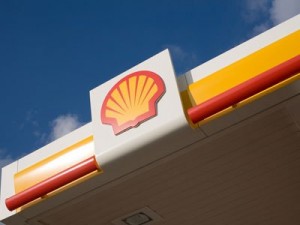 Royal Dutch Shell reported “disappointing” second-quarter profits of $4.6 billion, well below market estimates, reflecting currency effects, rising costs and the worsening situation in Nigeria. Investors reacted to the news, leaving the shares down 4.4% in early London trading at £21.40.
Royal Dutch Shell reported “disappointing” second-quarter profits of $4.6 billion, well below market estimates, reflecting currency effects, rising costs and the worsening situation in Nigeria. Investors reacted to the news, leaving the shares down 4.4% in early London trading at £21.40.
The company’s US exploration and production business recorded a loss for the quarter, underlining the continuing problems the company is facing in North America. Analysts expressed concern at the yearly decline in oil and gas production and cash flow, and the rise in capital expenditure, which worked out at more than $40 billion on an annualized basis. Many investors had hoped the era of massive investments by Shell in new projects had come to an end, reducing the strain on its balance sheet.
During the three month period, the oil giant saw earnings fall on a current cost of supply basis to $4.6 billion, down from $5.7 billion in the same quarter a year before which represents a dramatic 21% decline. This is excluding a one off net charge of $2.2 billion mainly due to impairments in its Italian business and liquids-rich shales properties in North America.
Peter Voser, the chief executive of Shell, said higher costs, exploration charges, adverse currency exchange rate effects and “challenges in Nigeria” had costed the company, but even so were “clearly disappointing for Shell”, he said cited by Financial Times.
He added that Shell had launched a strategic review of its Nigeria onshore portfolio. This could lead to it divesting some 100,000 barrels a day of production in the eastern part of the Niger Delta, where much of the oil theft happens. Shell said the results also reflected the impact of the weakening Australian dollar on a deferred tax liability. They were also affected by higher operating expenses and depreciation as well as increased exploration well write-offs.
Mr Voser tried to be positive, explaining he expected to see five major project start-ups in the next 18 months that would add more than $4 billion to Shell’s 2015 cash flow. He said the company was managing its portfolio more rigorously to improve capital efficiency, a process that would lead to a higher rate of divestment in the coming years.





